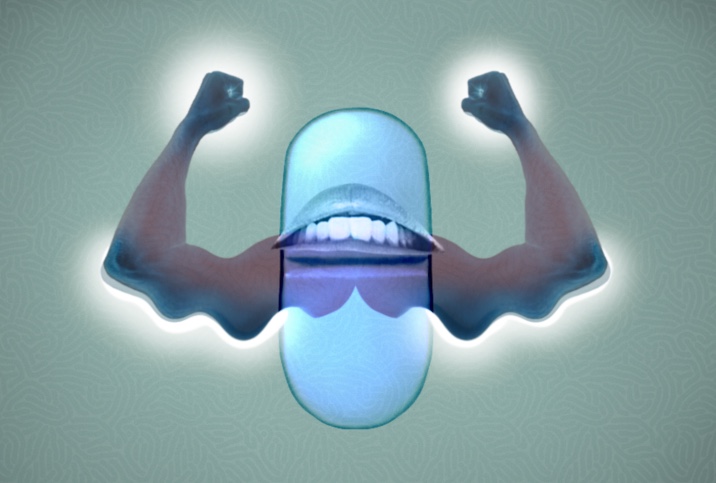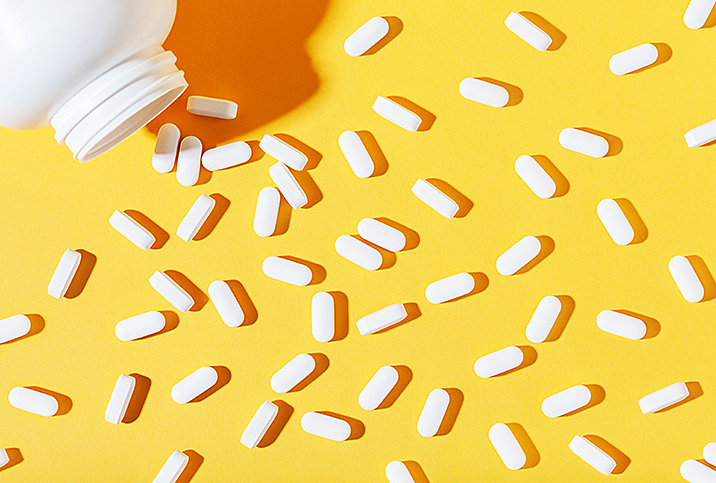The Many Physical and Mental Benefits of Optimal Testosterone Levels

Testosterone is commonly known as the "male hormone," even though women have it too, albeit at lower levels. A more appropriate name for it is "sex hormone," and it does play a vital role in a man's health throughout his life.
It is critical for maintaining the male sex drive and producing sperm, and for retaining muscle mass, emotional stability and energy levels.
Overview
Exposure to testosterone begins in the womb. The hormone controls the differentiation of males from females during pregnancy, ensuring the development of male reproductive organs. Testosterone is also the primary player in initiating puberty in males.
When puberty begins, the pituitary gland sends signals to the testicles to begin ramping up testosterone production. This, in turn, causes male adolescents to begin developing deeper voices, facial hair and bulkier muscles. It does the same for female-to-male (FTM) transgender people who take testosterone injections.
Sometimes, other less-welcome changes may come with increased testosterone, such as acne and more emotional volatility.
For people born with testicles, the increased testosterone production of puberty also results in the testicles and penis growing larger and the body beginning to produce sperm. It also jump-starts the sex drive.
Testosterone isn't just a puberty hormone, though. Healthy testicles produce testosterone throughout the person's life. The difference as we get older is that our bodies naturally produce less and less testosterone. Once you hit your 30s, your body typically begins reducing the amount of testosterone it produces by about 1 percent per year.
Total testosterone for males between the ages of 18 and 99 can range from 193 to 824 nanograms per deciliter (ng/dL), according to Cleveland Clinic. The guidelines used by the American Urological Association (AUA) state that the cutoff for measuring low testosterone—also called low-T or hypogonadism—is total testosterone values that come in below 300 ng/dL after repeat testing during morning hours when testosterone is at its peak.
Low-T can cause a number of problems. Ensuring that testosterone levels are in the optimal range provides a number of health benefits, both physical and mental.
Physical benefits of optimal testosterone levels
You probably can name a few of the physical benefits of testosterone, but a couple of them may surprise you.
Healthy libido and erectile function
It's important to note that while getting your testosterone levels to the optimal range can likely help with sex drive and erectile function, a bout or two of erectile dysfunction (ED) doesn't necessarily mean you have low testosterone. As men age, their sex drive naturally declines, and ED happens to everyone from time to time, regardless of age and testosterone levels.
When Amy Pearlman, M.D., a men's health specialist and co-founder of Prime Institute in Fort Lauderdale, Florida, talks to her patients about ED, it starts with a little reality check on expectations.
"I explain how common ED is, that over 50 percent of men over [age] 40 have a drop in erectile function and that nobody can perform 100 percent of the time," Pearlman said. "Even if it may not be a persistent thing, we can't expect ourselves to perform 100 percent of the time. That's normal throughout life."
Muscle building and healthy bones
Testosterone is also a key component for maintaining muscle and bone density. Optimal testosterone levels mean you're less likely to develop gynecomastia, or enlarged breast tissue.
One frequent comment from men who have hypogonadism and get testosterone replacement therapy (TRT) is that they notice their belly fat decreasing.
Heart health
There is some evidence that declining testosterone levels past age 40 may be linked to a number of heart and circulatory issues. Low-T in older men is thought to be associated with cardiovascular risk, coronary artery disease and congestive heart failure, as well as being linked to all-cause mortality.
Lower risk of diabetes
The area of study is still expanding, but there is some fairly robust evidence that optimal testosterone is associated with a lower risk of developing type 2 diabetes. Maintaining proper testosterone levels may even help prevent prediabetes from getting worse.
"More studies are ongoing and need to be done as far as the link between diabetes and prediabetes and low-T," said Neel Parekh, M.D., a men's fertility and sexual health specialist with Cleveland Clinic. "But some studies do show that for patients that are prediabetic and have low-T, treating low-T may prevent them from progressing to full diabetes."
Mental health benefits of optimal testosterone levels
Testosterone may be linked in the broad consciousness with the purely physical—manly men with massive muscles and perma-hard erections—which, of course, doesn't reflect reality.
Another truth, though, is that the hormone is vital to mental health.
Low-T has long been suspected of being linked to depression, especially in older men whose testosterone has naturally declined over time. One meta-analysis looked at seven double-blind studies in which there was a control group that was given a placebo along with a group that went on TRT.
The researchers found there may have been a significant positive anti-depressive effect for the men who received testosterone. The researchers also noted that this effect appeared to be particularly profound in older subpopulations.
There is a lot of overlap between symptoms of depression and symptoms of low-T, so it can be difficult to tease apart which came first, the chicken or the egg. However, if you're experiencing some or all of the following, it would be worthwhile to get evaluated by a mental health professional as well as get a testosterone workup:
- Anxiety
- Mood swings
- Irritability
- Fatigue
- Interrupted sleep
- Difficulty focusing
- Lack of motivation
- Social withdrawal
This is not to say that every time a person with low-T gets up and running on a TRT program, they no longer suffer from any of these symptoms.
However, there is plenty of data showing that getting testosterone levels to optimal values for your age can make a significant difference in many mental health issues, in addition to the well-known physical effects.
Conclusions
Testosterone, especially for males, is a critical hinge point of overall health that can influence a wide array of potential health problems, both mental and physical.
On one hand, testosterone is not something to abuse to try to get bigger muscles. It's equally important, however, to make sure your body is producing enough and, if not, to get the help you need to reach the optimal level for you.
Don't have a doctor you see regularly and have any of the symptoms of low-T? Fortunately, telehealth makes it easy to connect with someone who can answer your questions and evaluate your situation.
Many physicians offer video visits, which are a good way to see a doctor quickly since a lot of them have same-day appointments. Giddy Telehealth is an easy-to-use online portal that provides access to hundreds of healthcare professionals whose expertise covers the full scope of medical care, including men's health.


















